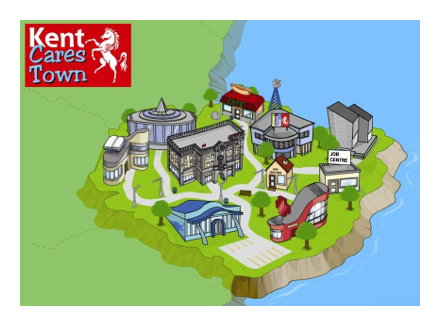
Being in Care
What is the Children Act 1989?
The Children Act is an important law for children and young people. It is about how children and young people should be brought up and cared for.
What does the Act say?
It says that:
- When a court or a local authority, which you may know as the council, is making decisions about a child, their first thought must be what is best for that child
- Young people should be brought up in their own family whenever possible
- Young people should not be taken away from their family, without the family agreement, unless the child is at risk of harm
- A local authority must work together with parents and children
- A court must put young people first when making decisions
- When children are being looked after by local authorities, they and their parents have rights
Why is the Act important?
It says how you can be protected and gives you certain rights. It says that you are a person who must be treated with respect.
This means
- You should be protected
- You must be listened to
- If a local authority is deciding what should happen to you they have to find out what you feel and want. They must tell you what is happening and why. They must decide quickly what to do for you
- You must be told your rights
- You can talk about any worries you have or make a complaint if things go wrong
Help
The Act says the local authority must help you if you will suffer without help or if you have a disability and need help.
The local authority may do this by finding you a place in an after-school or holiday club. Sometimes, to help you, they must also help your family.
Protection
The Act says that if you are in danger or at risk or harm in some way then you must be protected. It says that the local authority must listen if they are told you are in danger. They must consider what is happening and if necessary, go to court and ask the court to decide what is best for you. The court can make orders saying what is to happen to you.
The court will only make an order if it thinks this will make things better for you. If it doesn’t believe that, it will make no order.
Rights
The Act gives you other rights as well as those talked about earlier. These are
- A right to have your voice heard in some court cases that are about you
- A right to have your own solicitor, who can help you with legal issues, and tell him or her what you what you want to happen if you are able to understand what is involved
- A right, in some cases, to ask a court to look again at an order a lower court has made
- A right to say no to being assessed or medically examined (again if you understand what this involves)
- A right to be told certain things by the local authority if you are in care
Foster carers look after children and young people who, like you, cannot live at home. They are carefully checked out and given training before any young people can live with them to make sure they can offer you a safe place to live. Many foster carers will have cared for lots of children and young people before.
Foster carers need to know the important information about you and your family and the reasons why you need to be cared for by them. This will help them make sure you are safe and as happy as possible. They will want to know about your interests and hobbies, your health, where you go to school or college, your brothers and sisters and your religion or culture.
A Social Worker will take you to your foster carer’s home, where you can meet everybody that lives there. Your Social Worker will try to make sure that you meet your foster carers before moving in, but this may not always be possible in an emergency. You can bring some of your belongings including those things that are important to you. A placement meeting will take place before you move in with your foster carer or within 5 days of your move. This meeting is where you, your foster carer, your Social Worker and your parents may be invited to decide what is needed to help the foster carer look after you. This will include what food you like, any routines you have, any medication that you may take and who you will see from your family.
What about my brothers and sisters?
Your Social Worker will do everything they can to make sure you can live with your brothers and sisters. However, sometimes this is not possible because it is not what is best for you all. If you cannot live with them, your Social Worker will explain the reasons for this and help you to see them regularly or resolve any problems between you.
Will I have to move far?
Every effort is made to give you somewhere to live that is near your home and school or college although sometimes it is not possible or appropriate and this will be explained to you.
Will I have my own room?
You must have your own bedroom if you are over two years old. You can choose to share with a same sex sibling or another same sex child of a similar age to you. When children share bedrooms, there must be an agreement before.
What are the different types of foster care?
There are many types of foster care. Some of them are:
- Many children in Kent live with foster carers for only a short time, sometimes for only a few weeks or a few months, while a family issue is solved.
- Long-term foster care provides a safe, stable place to live for children unable to return to their own families
- Special needs foster care
- Short break foster care gives children and their families or carers a short break.
- Residential care. You may go to live in a children’s home, particularly if you’re a teenager when you first become looked after. Sometimes a young person doesn’t get on well with foster care, perhaps because they are deeply attached to their own family and don’t want a new family. Or it may be because they have very challenging behaviour which foster carers have found difficult.
- There are also specialist schemes providing care for vulnerable children and young people who are at risk.
Your Care Plan sets out in writing how you will be cared for and what needs to be done for you to make the plan work and who will do it. It should include your views and opinions and what you need to do too. You should already have a Care Plan before you came into care or within ten days of being looked after. This should say how the local authority plans to care for you, based on an assessment including what you have said you want to happen. The key parts of this assessment will be done by your Social Worker. Care Plans are there to help you achieve all that you can, and, also, to help local authorities act as the best possible “Corporate Parents” towards you.
Your Care Plan includes:
- Where you live
- Where you will go to school or college
- How we will make sure you are healthy
- How you can do the things you enjoy such as sports or hobbies
- When and how you will see the people who are important to you such as your family
- How you can practise your religion and culture
- Any legal issues
- What will happen in the future
Your Care Plan will also set out what will happen if your plan is not working. This is called a Contingency Plan.
Your Social Worker and their manager are responsible for your Care Plan but they must make sure that your wishes and feelings are included. They must also listen to your parents and talk to other professionals that work with you such as your teacher.
Reviews are meetings held to check your Care Plan and make sure that everyone is completing the agreed tasks that have been set. They are led by your Independent Reviewing Officer (IRO). At the meeting, those present check that it still meets your needs, decide on any necessary changes and make plans for the future.
Before the Review Meeting
The Independent Reviewing Officer (IRO) must speak to you in private before your Review (unless this is inappropriate, or you say that you do not want this). They will also speak with your Social Worker and read all relevant reports and background information.
Consultation forms will be sent out to you, your parents/carers and other people involved in your life for each to complete with their views.
Your IRO should listen to you about how the Review Meeting is run and who you think should attend. Also, it might be that some places and times are better for you. You might prefer smaller meetings with fewer people. You may have your own ideas about what you want to say and how you would like to say it and the review should allow you to discuss the things that matter to you.
What does the Review Meeting talk about?
Your Review Meeting is about you and your views. The topics that may be discussed include:
- Any changes in your situation since the last review
- Whether the decisions taken at the last review have been carried out
- Where you live
- Your education
- Seeing your friends and family
- Your hobbies and activities
- Your health
- Your individual needs and identity are supported
- Whether you are visited often enough by your Social Worker and feel listened to and safe
- Any advice or support you need for any aspect of your life, including when the time is right for you to leave care.
The IRO is responsible for making sure that things agreed in your care plan are happening, and quickly enough. They should make sure that plans for you include what is best for your long-term stability. It is important that you are not constantly moved around from one place to another. The IRO will want to know that the local authority has explained its plans to you carefully and that you understand them fully.
The IRO will give you information about your right to challenge the local authority where you disagree with what they are trying to do for you. Your IRO will explain how decisions can be challenged, how to speak with an advocate and how to make a complaint.
Are there notes kept of the Review Meeting?
The IRO must make sure that a proper record is kept of your reviews, including the views of all those who attend, and any decisions taken to change your care plan. You should also get a copy of this and your social worker should update your care plan after every review meeting.
The law says that Kent County Council must let you have ‘reasonable’ contact with your parents. However, sometimes there are disagreements about what this means. When this happens, the court can be asked to make rules about how and when you see your parents.
Seeing your family will happen:
- If you want it to happen.
- If your family want it to happen.
- If it is safe.
If it is safe for you to meet with family members, your social worker will arrange regular meetings with them. These can take place in a family centre, maybe an office or sometimes at home. There will sometimes be a worker from children’s services present when you see them.
Your social worker and carers must help you to see or talk to your brothers and sisters who are also looked after but living in a different place from you, if it’s safe for you.
Plans should be made for contacting these people.
Your carers must never cancel planned visits or seeing your family as a punishment.

Kent County Council understands that being in care and leaving care isn’t always easy and that it can bring extra challenges and pressures for you. If we are going to get it right for you, we need to make a real difference to help you do your best and have success in your life so, with the help of the Children in Care Councils, we wrote the Kent Pledge. Our Pledge (a set of promises) includes a number of things we will do that will help make sure that your time in care is a positive experience.
These are based around six themes:
-
a sense of belonging
-
an adult who is always there for you while you are in care
-
a good education
-
good memories for the future
-
getting ready for being an adult
-
championing your needs and interests.
We will check our pledge to you often so that, when we can, we will improve on the commitments that we make and listen to your views.
Ask your Social Worker for your pack of Kent Pledge Cards which give you a shorter version of the Kent Pledge commitments.
Our Kent Pledge states to young people that ‘We understand that being in care isn’t always easy, and that it can bring extra challenges and pressures for you.’
For that reason, it is important that you are given the right information when you first come into care about what being care means and how you will be supported. It is also important that you are given up to date information during your time in care and when you leave care.
Below is a list of the leaflets and information that are given to you when you first come into care by your Social Worker. If you have any questions about any of the information, speak to your Social Worker who can help explain things to you.
You can also download them here to read them any time that you need to. We have different versions for children aged under 12 and those aged 12 and over. Just click on the links below. We know that some of these documents are not yet digitally accessible. If you need the information in an alternative format, please contact VSK_Participation@kent.gov.uk
Information if you are aged under 12
-
Information about Advocacy (from the Young Lives Foundation)
-
Daisy Lamb Book (Designed for children up to age 7, please ask your Social Worker for a copy)
-
IRO Information (Under 12 version)
This information is also available in different languages.
Information if you are aged 12 and over
-
Information about advocacy (from the Young Lives Foundation)
-
IRO Information (Over 12 version)
This information is also available in different languages
